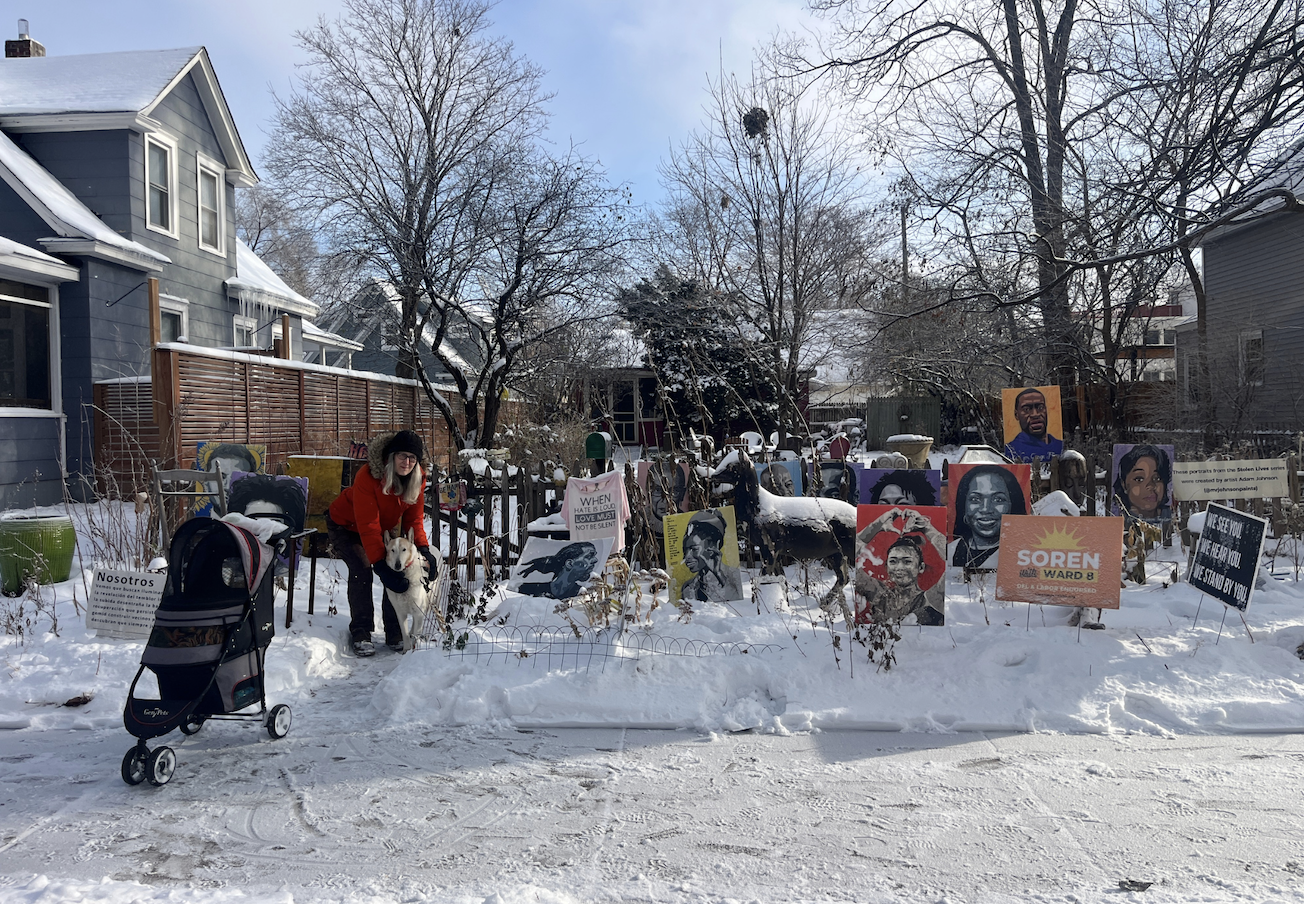Last week, the Minneapolis City Council approved a police “buyback” program for the Lowry Hill neighborhood. As part of the agreement, a group of neighbors in Lowry Hill will be paying for an estimated 11 hours of additional Minneapolis Police Department patrols every day.
The buyback program isn’t new. According to an MPD Public Information Officer Garrett Parten, the Lyndale and Whittier neighborhoods, the Downtown Improvement District, Uptown Special Service District, US Bank Stadium, the Timberwolves, John Gore Theatrical Group, Grandma’s Marathon, and the Minneapolis Public Housing Authority have all utilized buybacks.
In this case, the Minneapolis Safety Initiative, a Lowry Hill-based organization, established an agreement with the City to pay $210,000 in 2022 for additional police presence. The group is run on a volunteer basis by Cam Winton, an attorney who also ran for mayor in 2013. The buyback plan was put together after initial discussions about private patrols fell apart for a variety of reasons, with residents raising concerns about both armed and unarmed private patrols.
They recently launched a website to answer questions about their plan and intentions, and to solicit donations. They are funded through voluntary contributions by neighborhood residents, and the website asks people who are willing to pay to contribute $220 per month, which they say would pay for two additional hours of police patrol each month, a slight markup from the $107 per hour that their contract with the City states they will pay per hour of an officer’s time.
The group makes two major claims on its website:
- “The problem: The Minneapolis Police Department (MPD) has a staffing shortage. In recent months, incidents of crime—including armed carjackings and armed robberies—have increased dramatically.”
- “Entities can pay the City of Minneapolis to deploy MPD officers for shifts that the officers would otherwise not be working.”
If the Minneapolis Safety Initiative is correct that a staffing shortage is leading to an increase in crime, then it’s fair to raise whether the hours that police officers will be paid for should be allocated to areas where they’re needed to reduce crime, not to where residents are willing to write a check on top of the taxes that we all pay to fund the Department, be that in Lowry Hill, Lyndale, Whittier, or anywhere else that’s part of the program. It’s also worth pointing out here that as we laid out yesterday, other cities like Dallas and Charlotte that are down officers have also been able to reduce violent crime.
When asked about what they would tell people that live in higher crime areas that also want more police patrol hours but can't afford to buy them, Winton pointed to a portion of the website, which stated that “residents of any other Minneapolis neighborhood who wish to learn more about the MPD buyback program should feel free to contact [us] to learn more.”
The program is voluntary for Minneapolis Police officers. Officers can sign up for “buyback” that they work on top of their MPD schedule, which they are then paid for at a higher rate specified by the agreement between the city and the group involved. If no officers sign up for the program, none of these hours will be fulfilled or paid for.
This discussion has had echoes in other areas of Southwest. In January, neighbors in East Harriet had a discussion around private security that followed a similar pattern as the initial security conversation in Lowry Hill. An original proposal, laid out in an email to an East Harriet neighborhood listserv, drew a lot of attention after it was spotlighted by David Brauer in early January.
Here’s a quick summary of the proposal from the original email sent to the East Harriet neighborhood, as highlighted in Brauer’s tweet:
“They are UNARMED and patrol in marked Securitas vehicles. Patrols are carried out as much as possible by the same team of officers increasing their familiarity with the comings and goings of the area. Their primary function is deterrence by presence and the notification of authorities if obvious suspicious or threatening behavior is encountered.”
The initial email also included an attempt to address the concerns raised by the first conversations around the proposal:
“Is this plan perfect? Absolutely not. The illusion of deterrence may be precisely that, but doing nothing is clearly nothing... We are trying to improve safety in the neighborhood we all live in, cherish, and want to make safer.”
The email launched an interesting debate amongst the neighbors that live in the dozen or so blocks covered by the East Harriet proposal around the plan’s benefits, implications, and the neighborhood’s values. While some neighbors were initially supportive, others were vocally opposed, citing both the cost and fact that their presence was likely to exacerbate issues with racial inequity and racial profiling in the neighborhood.
In the end, both neighborhoods came to roughly the same conclusion: that private security contractors, for one reason or the other, wouldn’t be a viable solution for either of them right now. In Lowry Hill’s case, they then shifted their focus to the buyback program.
In other neighborhoods, like Lowry Hill East and Kenny, neighborhood organizations are playing a coordinating role in developing “block watch” organizations, which Lowry Hill East Neighborhood Association (LHENA) President Eric Ortiz wrote a piece for us about last month.
The two groups have been coordinating together in an effort to build collaboration from block club groups across neighborhood lines, and have reached out to the city to “convince the city of the need to help us more than they have to this point,” according to Jon Erickson, co-chair of the Kenny Neighborhood Association.
LHENA will be piloting a Community Public Safety Partnership program facilitated through the city’s Office of Violence Prevention. A core group of residents from the neighborhood will be doing training and mentoring through the program for the next six months. “We are excited about the journey ahead and grateful for the opportunity to help our community,” said Ortiz.
The City Council voted to approve the Lowry Hill buyback program last week. From here, the Minneapolis Safety Initiative will continue fundraising and work with the city on a plan to implement the buyback program in their neighborhood.
Different models like these will continue to emerge, but as neighborhoods across the city are having conversations about public safety, it will be very important to watch how and why these programs are implemented.

.jpg)







